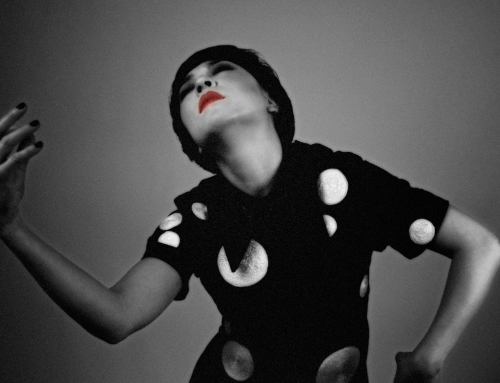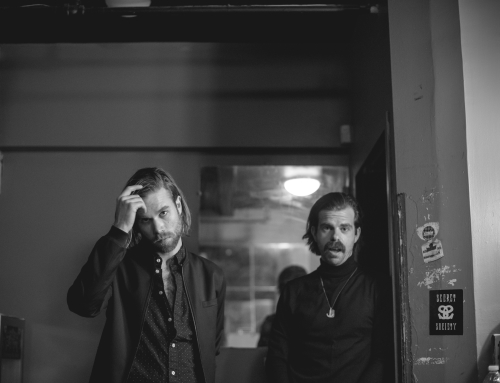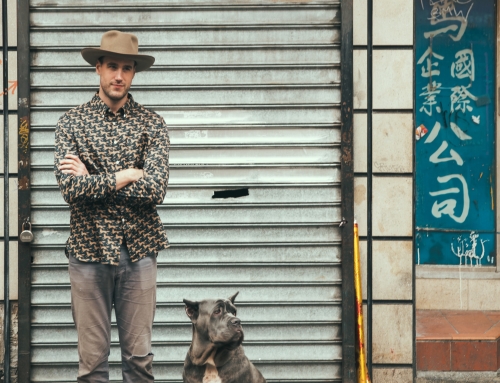Regina Spektor’s latest album is the sum of its parts. Quite simply put, it’s a graceful culmination of her personal experiences up until today.
During my interview with the singer/songwriter in a Midtown hotel in NYC; the story of her career and the making of her current release — What We Saw From The Cheap Seats — commanded attention, despite the flash of distraction that presented itself in the form of the filming of an episode of SMASH, and the revolving door of media, eager to get 5 minutes with Miss Spektor to talk about her first album since 2009.
“It’s my art, my livelihood,” declares Spektor when asked what music means to her. A stir of smooth trills and erratic halts, the 32- year-old singer’s music has made its mark on the industry with its signature reverberating vocals and lyrics that move without feigning drama.
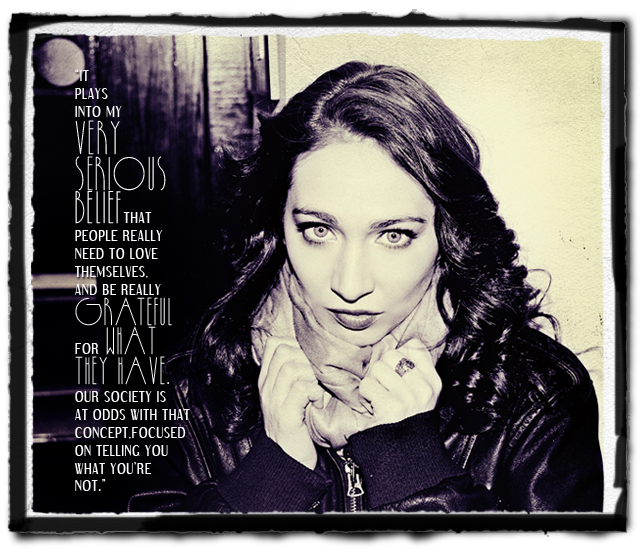
An observer of everyday living, life isn’t something Spektor exaggerates. Meditative as she is grounded, she views her path as an intricate pattern of connectivity, with the smallest of details able to affect the outcome of one’s course in life. The roots of her philosophy began as a child, living in New York — growing up in an oyster of culture and creativity — but the storied opportunities available to young artists populating the city was the polar opposite of the position Spektor’s family found themselves in upon immigrating to the United States. A determinist, the singer believes that’s the way it had to be. Had her parents not been Russian Jewish immigrants, had she not grown up in New York, had she not studied art at SUNY…you get the idea. Her place in the music world is the product of many small details sewn together, rather than over planning and over thinking her vision for the future. “I’ve never been a practical person, I’ve never made a timeline,” admits Spektor. “Things like that put unnecessary pressure on you.”
She explains, “Something as small as being 2 inches taller, it would [all] be different, everything leads you in your direction and everything that is you — your own properties — whether they’re internal or external, they all flow together into this stream that takes you on your course.” She laughs at the thought of “if” she had grown up in Colorado for example, noting that perhaps she’d have been a great skier rather than singer. “It plays into my very serious belief that people really need to love themselves and be really grateful for what they have,” says the singer about her determinism. “Our society is at odds with that concept, focused on telling you what you’re not.”
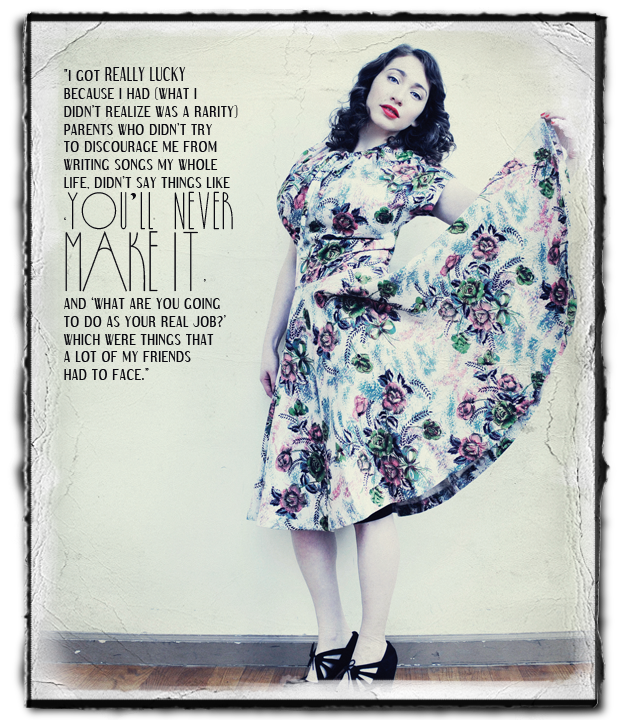
Living in New York, deciding to become an artist and to live an unconventional lifestyle doesn’t seem like an easy choice, especially not when competing with the few thousands in the city who are pursuing the same path, an experience Spektor still remembers growing through and seeing others struggle with. “A lot of people went to art school then when it was done they had to make a go of it in New York. It was hard because they had to make enough money to pay rent and the struggle begins: living in shitty neighborhoods, spending all your time on the subway or at your day job, which leaves little energy to devote yourself…to your art, and then [there’s] the reality of just trying to be an artist in any medium.”
Unlike some of her friends who faced the artist’s burden alone, Spektor has long had the support of her family, close by in the Bronx.”I got really lucky because I had (what I didn’t realize was a rarity) parents who didn’t try to discourage me from writing songs my whole life; didn’t say things like ‘you’ll never make it’ and ‘what are you going to do as your real job?’ which were things that a lot of my friends had to face.”
Even still, her path to today’s success was no cakewalk. Her personal hard days night involved 5 hours a day traveling on public transportation trying to get from her day job to various open mike nights and café gigs. On her multiple rides she recalls, “It’s insane, even if you’re reading really good books or listening to cd’s on your walk-man, it still sucks!”
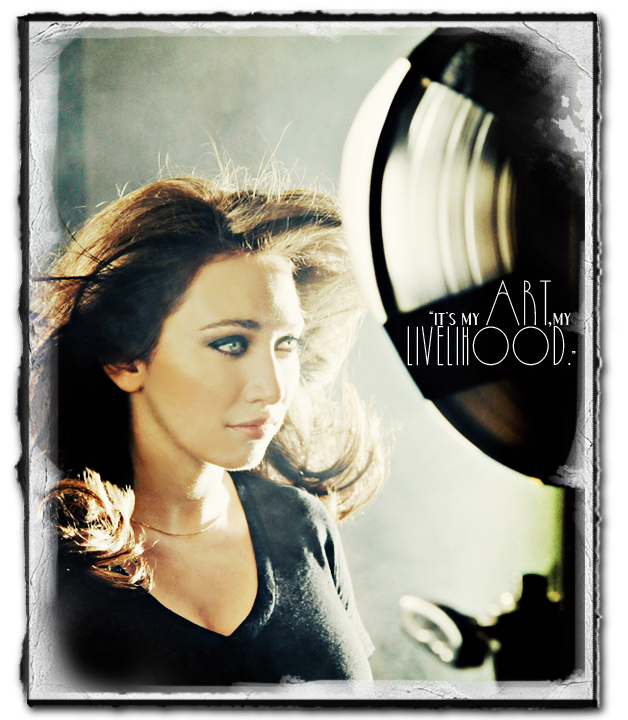
The singer has come a long way since her moonlighting days, now boasting tours across the world’s stages, a Broadway musical, Beauty, a Sleeping Beauty-inspired project, under development, and being the sought after voice of films and commercials alike, Spektor’s star is upwardly directed. And, as an artist who’s career has come to bloom during the new digital age, she doesn’t underestimate the significance of the Internet. In her perspective the debate regarding the good and the evil of free sharing is a paradoxical one. “I’ve been told everything from ‘Had you existed in the previous system you wouldn’t have even been signed because they didn’t sign women who were 24 or 23.’ And I’ve been told: ‘Had you existed in the previous system you would be a multi-millionaire and you would have gone platinum.’ So the knowledge I have been getting is totally conflicting, but to me in this system I think that its a paradox where both things are absolutely true”, explains Spektor. “I think in one way I don’t even know what kind of livelihood I would have had without the Internet…so much of my channels toward people have been through free sharing. I think that it’s responsible for my ability to tour in so many countries and different places.”
The singer spreads her Internet love to Facebook, praising it for it’s one time incomprehensible reach and ability to establish connectivity. “I love that I’m able to have something like my Facebook page where I can put up a song of a friend of mine that I like or write something that upsets me about a political situation or put up a weird cat video or whatever I want, laughs Spektor. “It’s almost like having a phone booth-sized gallery that is mine, and whoever wants to come to my showing without leaving their house at any time can — that’s an amazing gift.” Despite her admiration for the invention of social networks, the singer waxes on the affect the extension of one’s personal life into the public sphere will have on social media users’ collective perspective. “I’m very worried about the future generation’s idea of privacy,” she shares. “I think that people are starting to lose sense of their self, and what is their internal world and what should be an external world.” For Spektor, who is know for her deeply personal lyrics, something should be kept private or at least cloaked with some poetic mystery.

Offline, since the beginning, Spektor’s has been heavily affiliated with the East Village music scene, and was a staple performer at local haunts like Sidewalk Café earlier in her career. While the singer still stops by her former stomping grounds, don’t hold your breath when it comes to catching an impromptu performance by Spektor. As the singer confesses, “performing always seems like a giant mountain for me. In a lot of ways emotionally, going and playing a spontaneous show at Sidewalk, feels just as scary as playing at Radio City Music HalI, when I did that. The only thing scarier [than performing live] is when someone is filming…then it’s like sheer terror!” Spektor’s nervous laugh at the thought clinches her sincerity.
Spektor pauses after thinking over the possibility of a surprise gig sometime, “I might be able to do it, in theory… I would love to do that,” she says and pauses again. “I really care about my compositions…I never just go and jam with someone. I like things thoroughly composed. I really like them specific, [but] I love the spirit [of spontaneity]…I love watching other people do it.” On the rare occasion the singer finds herself in an unexpected jam, she’s happy when ideas come from it, though as she shares, the discover must them immediately be further composed, a discipline and methodology that clearly stems from her love of classical music. “I take them to my layer and work on them, really put the time in,” says Spektor. “I am a natural over-thinker about everything… but what would I do if I didn’t have 70 million what-ifs in my head?”
With respect for her reservations, my fingers are still crossed that one-day Spektor might change her mind, and take the stage at a dimly lit cafe (with me seated in the audience) and just start jamming — sans cameras for comfort’s sake, of course.








